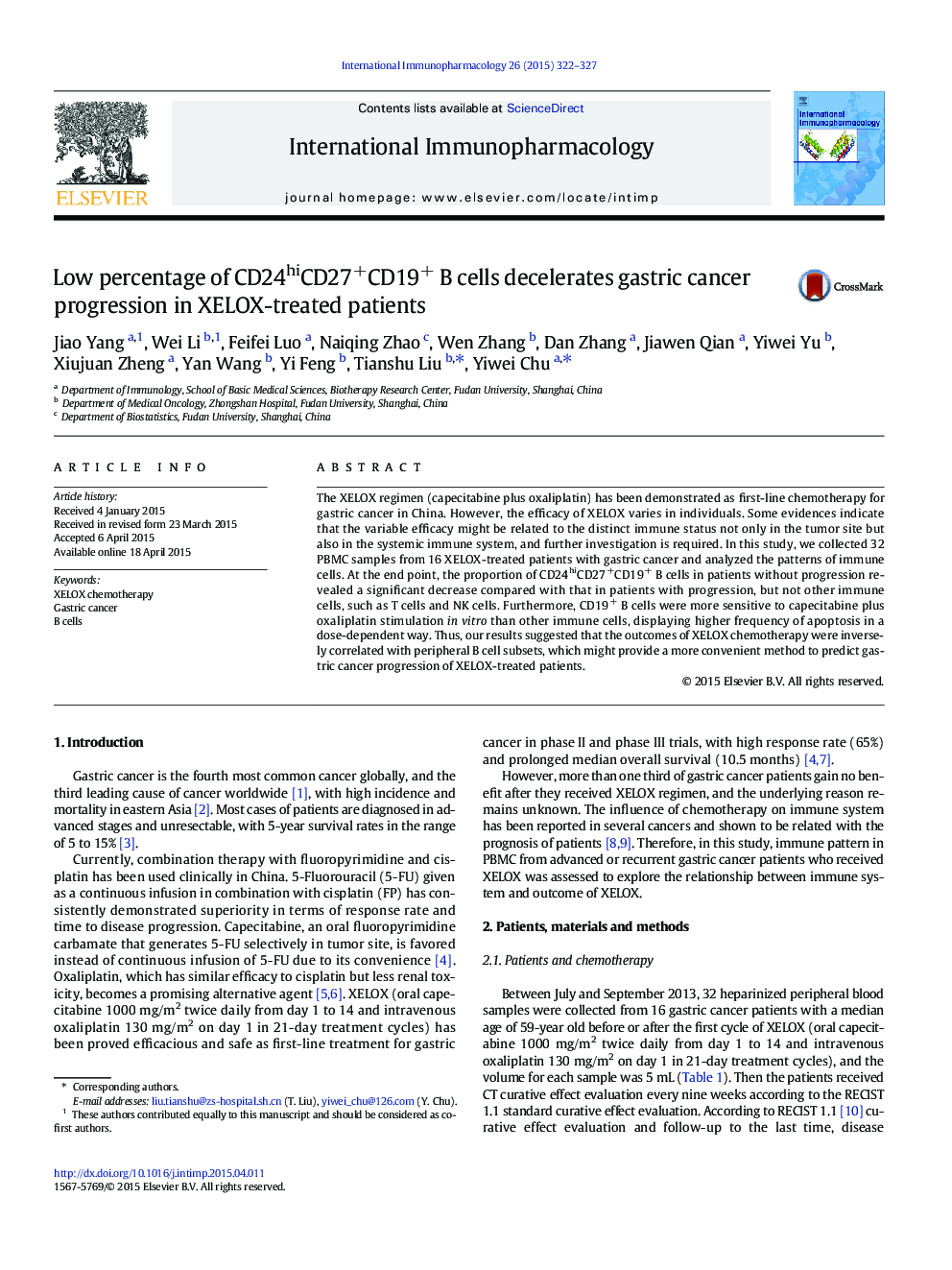| Article ID | Journal | Published Year | Pages | File Type |
|---|---|---|---|---|
| 2540528 | International Immunopharmacology | 2015 | 6 Pages |
The XELOX regimen (capecitabine plus oxaliplatin) has been demonstrated as first-line chemotherapy for gastric cancer in China. However, the efficacy of XELOX varies in individuals. Some evidences indicate that the variable efficacy might be related to the distinct immune status not only in the tumor site but also in the systemic immune system, and further investigation is required. In this study, we collected 32 PBMC samples from 16 XELOX-treated patients with gastric cancer and analyzed the patterns of immune cells. At the end point, the proportion of CD24hiCD27+CD19+ B cells in patients without progression revealed a significant decrease compared with that in patients with progression, but not other immune cells, such as T cells and NK cells. Furthermore, CD19+ B cells were more sensitive to capecitabine plus oxaliplatin stimulation in vitro than other immune cells, displaying higher frequency of apoptosis in a dose-dependent way. Thus, our results suggested that the outcomes of XELOX chemotherapy were inversely correlated with peripheral B cell subsets, which might provide a more convenient method to predict gastric cancer progression of XELOX-treated patients.
